Jesuit Migration Network: COVID-19 and Migrants
The following statement was issued by the Jesuit Migration Network on March 17, 2020, in response to COVID-19 crisis worldwide, including in the Americas.
In the face of the health and humanitarian crisis caused by the spread of COVID-19 coronavirus
We start from the certainty that today, more than ever, we live in times that require the highest personal and collective willingness as well as scientific, responsible and timely action in each country and an absolute commitment to leave no one “outside.” In dealing with issues of forced migration, often certain realities are set to one side and those who flee their countries are scapegoated or denied essential basic services. That is why, as the Jesuit Migration Network (RJM), we express our stance at a moment where we all need one another:
1. As long as necessary health and safety conditions are not guaranteed, it is urgent to halt deportations and all other judicial or administrative measures that put people at risk. Those who live in the shadows feel more afraid to seek care at nearby medical centers. In addition, it is difficult to maintain the proper “social distancing,” as recommended by health officials in many countries of the Americas during the process of being repatriated to one’s country of origin.
2. Regarding those who find themselves in detention after being forced to migrate – a situation we always reject – it is essential that detainees in the United States be released. As they are people who have been in constant transit, adequate health and safety standards must be upheld in all detention centers, holding cells, and, as the case may be, in public shelters set up where necessary. In order to reduce risk, migrants must be properly informed of the current circumstances so as not to contract the virus themselves or spread it to others.
3. Now more than ever, shelters serving migrants, displaced persons, and refugees must be provided with the necessary medical resources. Some shelters, particularly those at the border, will continue to provide services. Without risking their own health, volunteers and staff must be given proper training, as well as provided with the necessary medical supplies to take all necessary preventive measures.
4. Any assertion or measure aimed at discriminating, stigmatizing, or blaming migrants, displaced persons, or refugees should be stopped, especially in territories where xenophobia is part of the dominant or official discourses. It is clear that this pandemic can affect migrants in any situation, but by no means can they be held accountable, nor are they the focus in discussions by experts on the spread of the virus.
5. We must lift up our voices so that in each of our countries we may collectively reflect on the contributions that migrants and refugees make to our societies. These contributions cannot be excluded from a comprehensive approach to the crisis. On the contrary, they demonstrate how we all need each other if we are to find a way out of this pandemic. Migrants and refugees are a dynamic part of the societies in which they live. They provide indispensable services in many areas; they are consumers; provide childcare care; serve as caregivers for the elderly; and work in construction, agriculture and many other areas… In other words, they allow life to continue or reemerge. We will need migrants to help us overcome the foreseen economic recession. In light of this, countries should revise their migration policies to strengthen the integration of immigrants.
6. Finally, we demand greater transparency and timely information from governments and authorities. We understand the need to impose certain restrictions based on scientific evidence that such measures can help reduce the transmission of the virus, however, they must never come at the cost of constitutional rights or respect for the human rights of all people in all territories.
It is up to us as RJM to be part of the solution and to help provide informative, reliable, and accessible information that will enable migrants, refugees, and displaced persons to minimize the dangers related to infection or lack of adequate medical care. This is more important than ever in a time when countries are sealing off their air and land borders.
Our continent is bound by a thin cord that holds us from the north to the south. This is no time to pull hard from one extreme or the other. It is time to achieve a balance that allows for collaborative actions where we can protect ourselves without discriminating against anyone, hoarding essential items, stoking fears, or indulging in selfishness. We will only overcome this crisis if we don’t leave anyone “outside.”
Solidarity is the most effective of protocols
The Jesuit Migration Network is the collective effort of people and works related to the Society of Jesus in its search for Justice and Reconciliation through the defense and promotion of the rights of migrants, displaced persons and refugees in Latin America and the Caribbean.

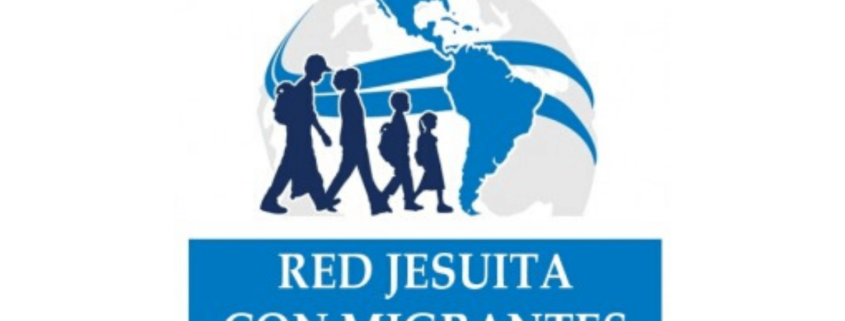
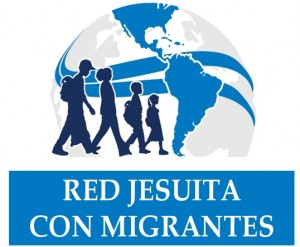


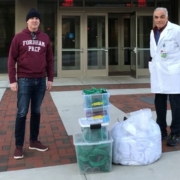
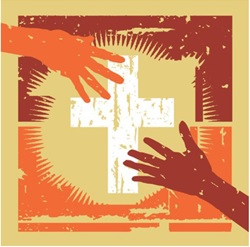
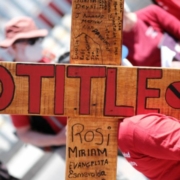



Leave a Reply
Want to join the discussion?Feel free to contribute!